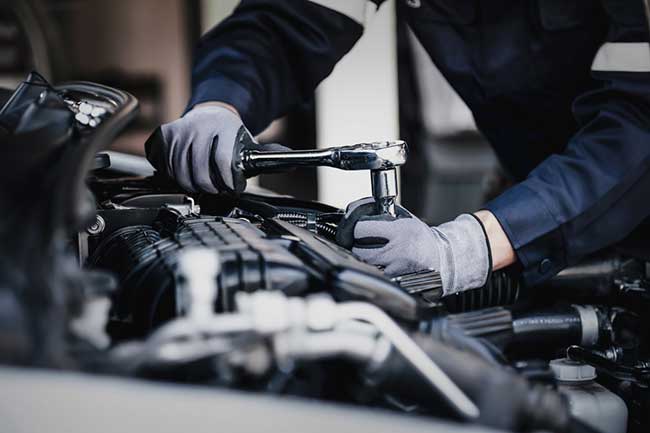All Categories
Featured
Unanticipated car repairs can interrupt your funds, making automotive repair work insurance policy an appealing choice for numerous motorists. Whether you're a new vehicle owner or managing an older vehicle, comprehending the information of automobile fixing insurance and protection is important for making informed decisions.
What Is Automotive Repair Insurance Coverage?
Automotive fixing insurance coverage, commonly called mechanical failure insurance coverage (MBI), is a plan developed to cover the expenses of repairing or replacing vehicle elements after a break down. Unlike conventional auto insurance policy, which attends to accident-related problems, repair service insurance concentrates on mechanical problems unconnected to crashes.
What Does It Cover?
The particular coverage differs depending upon the strategy and the insurance company you choose. Generally, repair insurance policy covers:
Engine Services: Consisting of parts like the timing belt, pistons, and cylinder heads.
Transmission Services: Covering the gearbox and associated components.
Electrical System: Attending to concerns with generators, starters, and onboard computer systems.
Cooling and Heating Equipments: Such as radiators, thermostats, and air conditioning units.
![]()
Steering and Suspension: Including shocks, struts, and power steering mechanisms.
Nonetheless, policies frequently omit routine maintenance, wear-and-tear items like brake pads or tires, and cosmetic problems.
![]()
That Needs Automotive Repair Insurance?
While repair work insurance isn't required, it can be beneficial for:
Proprietors of Older Autos: If your automobile runs out service warranty, repair work insurance can give assurance versus pricey break downs.
Frequent Commuters: High-mileage chauffeurs are a lot more likely to experience mechanical concerns, making coverage a worthwhile financial investment.
Chauffeurs of Expensive Versions: Luxury or specialty automobiles usually have higher repair service prices, which can be minimized by insurance coverage.
Key Advantages
Financial Defense: Assists prevent big, unforeseen repair work bills.
Versatility: Policies can be tailored to cover specific parts or systems.
Comfort: Minimizes anxiety about possible failures.
Considerations Prior To Investing In
Prior to dedicating to an auto repair service insurance coverage, think about these aspects:
Plan Conditions: Evaluation what is and isn't covered to avoid surprises throughout an insurance claim.
Deductibles: Understand the out-of-pocket expenses you'll require to pay prior to coverage begins.
![]()
Repair Work Store Options: Some insurers need you to use certain repair facilities, which can be inconvenient.
Premium Prices: Evaluate the yearly price of the policy versus the probability of needing significant repair work.
Existing Warranty: Inspect if your vehicle's producer or dealer warranty currently offers adequate protection.
Last Thoughts
Automotive repair service insurance policy can be an important safeguard, especially for drivers worried concerning the high prices of unexpected repairs. By carefully assessing plan choices and straightening them with your driving habits and automobile requirements, you can make a decision if this coverage is right for you. For included protection, constantly maintain regular automobile maintenance to minimize malfunction threats and maximize your insurance coverage advantages.
What Is Automotive Repair Insurance Coverage?
Automotive fixing insurance coverage, commonly called mechanical failure insurance coverage (MBI), is a plan developed to cover the expenses of repairing or replacing vehicle elements after a break down. Unlike conventional auto insurance policy, which attends to accident-related problems, repair service insurance concentrates on mechanical problems unconnected to crashes.
What Does It Cover?
The particular coverage differs depending upon the strategy and the insurance company you choose. Generally, repair insurance policy covers:
Engine Services: Consisting of parts like the timing belt, pistons, and cylinder heads.
Transmission Services: Covering the gearbox and associated components.
Electrical System: Attending to concerns with generators, starters, and onboard computer systems.
Cooling and Heating Equipments: Such as radiators, thermostats, and air conditioning units.

Steering and Suspension: Including shocks, struts, and power steering mechanisms.
Nonetheless, policies frequently omit routine maintenance, wear-and-tear items like brake pads or tires, and cosmetic problems.

That Needs Automotive Repair Insurance?
While repair work insurance isn't required, it can be beneficial for:
Proprietors of Older Autos: If your automobile runs out service warranty, repair work insurance can give assurance versus pricey break downs.
Frequent Commuters: High-mileage chauffeurs are a lot more likely to experience mechanical concerns, making coverage a worthwhile financial investment.
Chauffeurs of Expensive Versions: Luxury or specialty automobiles usually have higher repair service prices, which can be minimized by insurance coverage.
Key Advantages
Financial Defense: Assists prevent big, unforeseen repair work bills.
Versatility: Policies can be tailored to cover specific parts or systems.
Comfort: Minimizes anxiety about possible failures.
Considerations Prior To Investing In
Prior to dedicating to an auto repair service insurance coverage, think about these aspects:
Plan Conditions: Evaluation what is and isn't covered to avoid surprises throughout an insurance claim.
Deductibles: Understand the out-of-pocket expenses you'll require to pay prior to coverage begins.
[1].jpg)
Repair Work Store Options: Some insurers need you to use certain repair facilities, which can be inconvenient.
Premium Prices: Evaluate the yearly price of the policy versus the probability of needing significant repair work.
Existing Warranty: Inspect if your vehicle's producer or dealer warranty currently offers adequate protection.
Last Thoughts
Automotive repair service insurance policy can be an important safeguard, especially for drivers worried concerning the high prices of unexpected repairs. By carefully assessing plan choices and straightening them with your driving habits and automobile requirements, you can make a decision if this coverage is right for you. For included protection, constantly maintain regular automobile maintenance to minimize malfunction threats and maximize your insurance coverage advantages.
Latest Posts
Furniture Styles Living Area
Published Jan 19, 25
0 min read
Tinley Park Roofers You Can Trust - A-Abel Roofing
Published Jan 19, 25
1 min read
Boost Your Brand with Full Circle Marketing
Published Jan 19, 25
2 min read